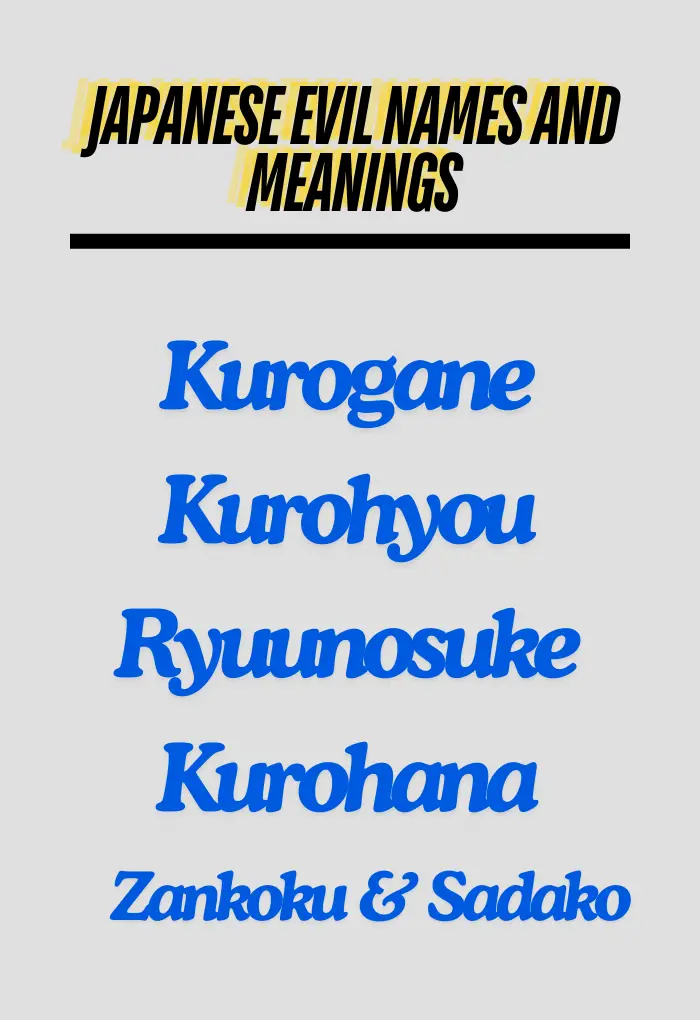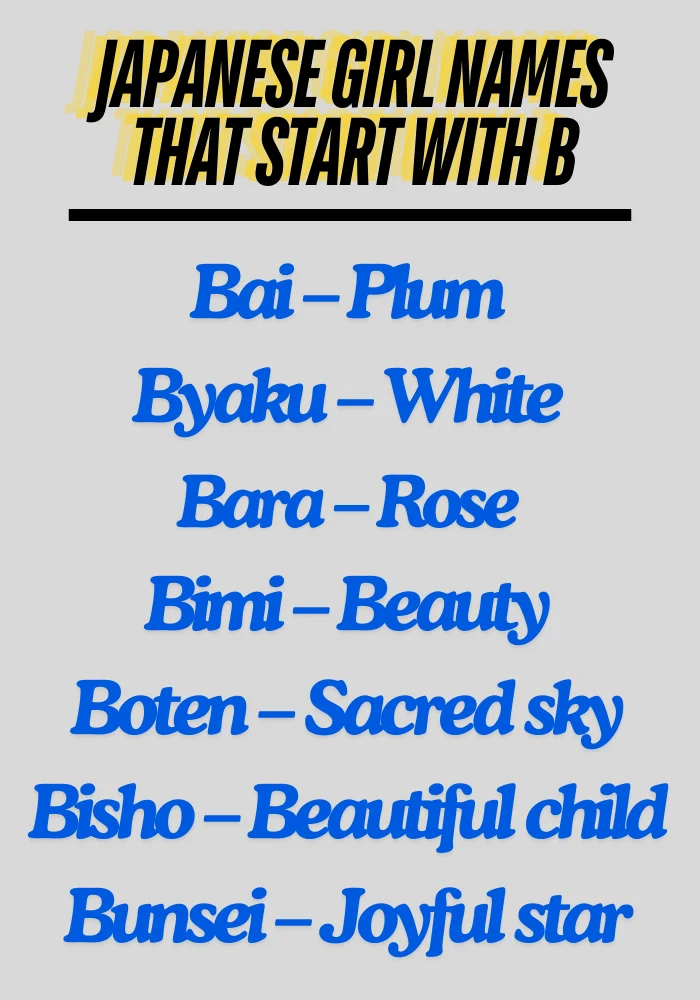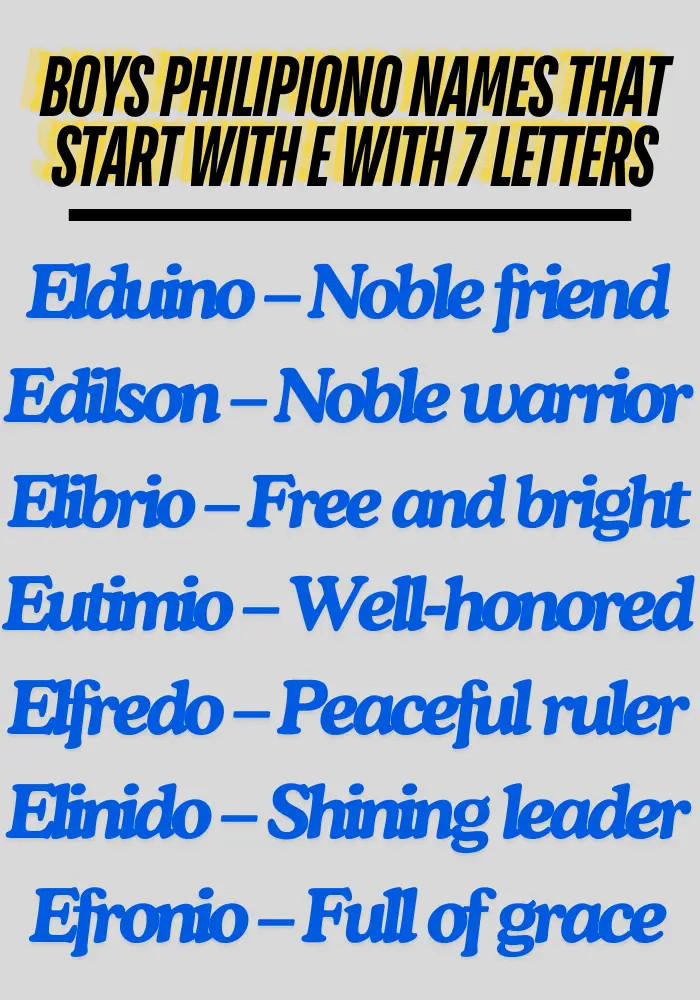When exploring Japanese evil names and meanings, one uncovers an intricate web of dark, mystical, and sometimes eerie associations. Names with dark undertones are often rooted in ancient folklore, mythology, and cultural symbolism. These names are not just about darkness or evil but also carry hidden meanings related to death, shadows, and despair. Below, we delve into various evil Japanese names for males, females, and couples, exploring their meanings and origins.
Japanese evil names and meanings male
In Japanese culture, names for males often carry strong, dark meanings that reflect power, mystery, or negative elements like death or destruction. These names are often used in stories, folklore, and even in modern media to depict villains or anti-heroes. Evil Japanese names male often draw from ancient myths, referencing demons, shadows, or curses. Below are some intriguing Japanese names with dark meanings male:
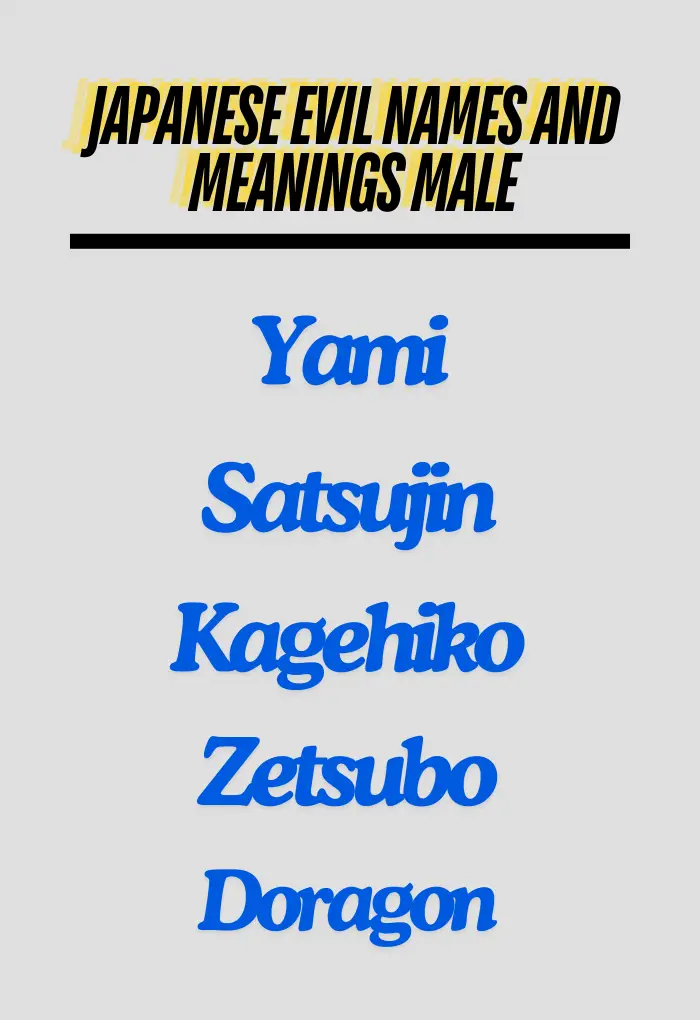
- Kurogane – Meaning “dark steel,” symbolizing cold strength and shadow.
- Yami – Simply meaning “darkness” or “shadow,” often used to depict the embodiment of evil.
- Akuma – Meaning “demon” or “devil,” directly referring to evil spirits in Japanese mythology.
- Shinigami – A name meaning “god of death” or “reaper,” representing death itself.
- Kurai – Meaning “gloomy” or “dark,” reflecting a person surrounded by shadows.
- Arashi – Meaning “storm,” symbolizing chaos and destruction.
- Gekido – Meaning “rage” or “wrath,” signifying uncontrollable anger.
- Onryo – Meaning “vengeful spirit,” referring to a malevolent ghost seeking revenge.
- Satsujin – Meaning “murder,” a stark and direct reference to death and violence.
- Yoru – Meaning “night,” associated with the unknown and dark forces.
- Jigoku – Meaning “hell,” representing suffering and torment.
- Kurohyou – Meaning “black panther,” symbolizing stealth and lethal power.
- Makoto – Meaning “sinister truth,” referring to a hidden evil beneath sincerity.
- Oni – A classic name meaning “demon,” used for monstrous creatures in folklore.
- Ryuunosuke – Meaning “dragon of darkness,” referencing a mythical, destructive beast.
- Zankoku – Meaning “cruelty,” symbolizing a heart filled with malice.
- Shura – Meaning “chaos,” referring to turmoil or conflict.
- Tsumi – Meaning “sin,” reflecting moral corruption or guilt.
- Akuhei – Meaning “malice,” a person filled with bad intentions.
- Kagehiko – Meaning “shadow prince,” reflecting a ruler of dark forces.
- Meifu – Meaning “underworld,” referring to the realm of the dead.
- Hakai – Meaning “destruction,” a name that invokes fear and ruin.
- Kuroi – Meaning “black,” symbolizing evil or mystery.
- Rei – Meaning “zero” or “void,” signifying emptiness or absence of life.
- Kishin – Meaning “demon god,” referring to a powerful, evil deity.
- Zetsubo – Meaning “despair,” symbolizing hopelessness.
- Shikyo – Meaning “death,” referring to the end of life.
- Doragon – Meaning “dark dragon,” symbolizing power and malevolence.
- Akuryou – Meaning “evil spirit,” invoking fear and malevolent energy.
- Genkaku – Meaning “illusion,” symbolizing deceit or a distorted reality.
Japanese evil names and meanings girl
For females, Japanese girl names that mean death or darkness often blend beauty with a dark undertone, creating names that are mysterious, haunting, and elegant. These names might be used to represent ghostly figures, cursed individuals, or dark deities in Japanese folklore. Japanese names with dark meanings girl can also reflect emotions like sorrow or loneliness, adding depth to their meanings.
- Mizuki – Meaning “water moon,” symbolizing an elusive, dark beauty.
- Sakurako – Meaning “cherry blossom child,” with dark undertones of fleeting life and fragility.
- Reiko – Meaning “ghost child,” evoking the spirit of the deceased.
- Yurei – Meaning “phantom” or “ghost,” often associated with haunting.
- Kurohana – Meaning “black flower,” symbolizing hidden beauty with dark roots.
- Satsuki – Meaning “murderous moon,” reflecting a night of violence.
- Kagami – Meaning “mirror,” symbolizing reflection with a sinister twist.
- Rin – Meaning “cold,” referring to a chilling, distant presence.
- Kyouka – Meaning “mad flower,” representing beauty twisted by madness.
- Tomoe – Meaning “silent death,” representing a quiet but inevitable end.
- Kuraihime – Meaning “princess of darkness,” symbolizing a regal but malevolent figure.
- Ayumu – Meaning “walking through shadows,” symbolizing a life filled with darkness.
- Akumu – Meaning “nightmare,” representing fear and horror.
- Shinobu – Meaning “endurance of darkness,” symbolizing silent suffering.
- Tsukiko – Meaning “moon child,” often representing something untouchable and ghostly.
- Yamiha – Meaning “dark leaf,” symbolizing decay and death.
- Hisako – Meaning “long-lived death,” representing the paradox of life and death.
- Kurumi – Meaning “dark forest,” referring to mystery and danger in nature.
- Sadako – Meaning “child of sorrow,” representing deep sadness or a tragic figure.
- Nozomi – Meaning “wish of death,” reflecting a dark desire.
- Aika – Meaning “sorrowful song,” representing melancholy and loss.
- Fuyuko – Meaning “winter child,” reflecting coldness and death.
- Shiori – Meaning “poem of death,” symbolizing an elegy or final words.
- Nariko – Meaning “thunder child,” reflecting stormy emotions and chaos.
- Kageko – Meaning “child of the shadows,” symbolizing someone hidden from the light.
- Yukiko – Meaning “snow child,” representing a cold and fleeting life.
- Jigokujo – Meaning “woman of hell,” representing torment and suffering.
- Inori – Meaning “prayer of darkness,” symbolizing a desperate plea.
- Kyoufu – Meaning “fear,” embodying terror and dread.
- Mizore – Meaning “frozen rain,” symbolizing a cold, destructive force.
Japanese evil names and meanings couple
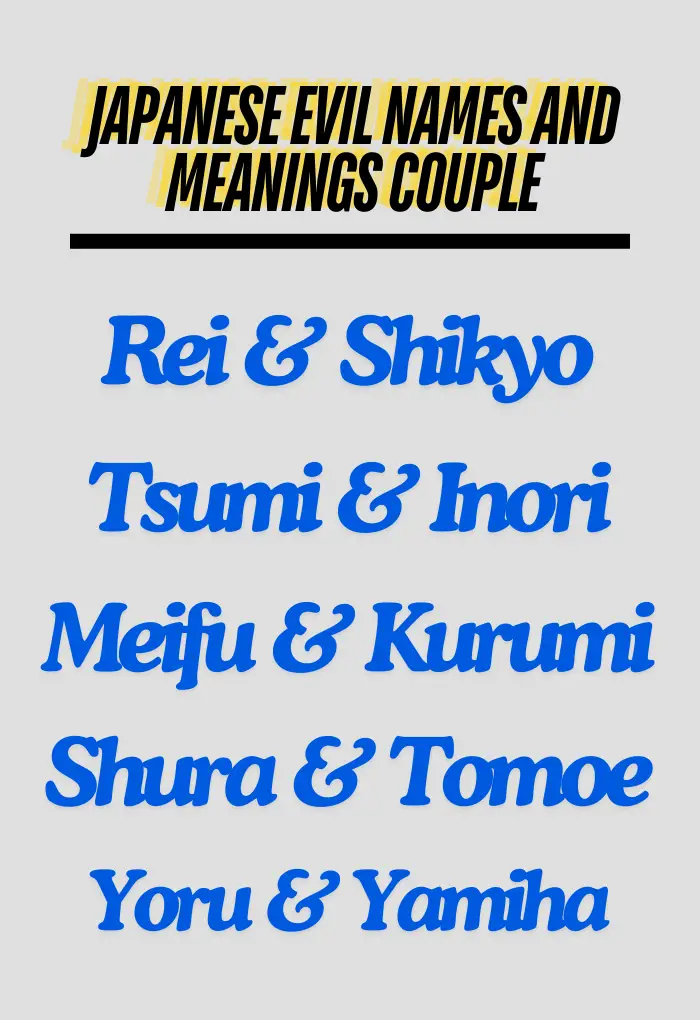
For couples, Japanese evil names often draw on shared meanings of death, darkness, or destruction. These names symbolize unity through darkness or a shared destiny tied to fate and tragedy. Evil Japanese names and meanings couple reflect deep connections in mythology or folklore, where two individuals share a cursed or shadowy bond.
- Yami & Kage – Meaning “darkness” and “shadow,” symbolizing a duo bound by the absence of light.
- Akuma & Oni – Meaning “devil” and “demon,” representing a pair of malevolent forces.
- Shinigami & Kurai – Meaning “god of death” and “gloom,” reflecting death and despair together.
- Onryo & Yurei – Meaning “vengeful spirit” and “ghost,” symbolizing spirits connected by revenge.
- Satsujin & Kyouka – Meaning “murder” and “mad flower,” a couple driven by violence and madness.
- Rei & Shikyo – Meaning “void” and “death,” symbolizing the emptiness and the end.
- Zankoku & Sadako – Meaning “cruelty” and “child of sorrow,” representing emotional and physical torment.
- Tsumi & Inori – Meaning “sin” and “dark prayer,” symbolizing guilt and despair.
- Hakai & Aika – Meaning “destruction” and “sorrowful song,” representing destruction and melancholy.
- Doragon & Kagehime – Meaning “dark dragon” and “shadow princess,” a pair embodying lethal beauty and power.
- Meifu & Kurumi – Meaning “underworld” and “dark forest,” symbolizing hidden depths and mystery.
- Kurogane & Mizuki – Meaning “dark steel” and “water moon,” representing cold beauty and strength.
- Gekido & Tsukiko – Meaning “rage” and “moon child,” a couple reflecting anger and mystery.
- Shura & Tomoe – Meaning “chaos” and “silent death,” symbolizing conflict and the inevitable end.
- Jigoku & Jigokujo – Meaning “hell” and “woman of hell,” a couple bound by torment and suffering.
- Yoru & Fuyuko – Meaning “night” and “winter child,” reflecting coldness and the dark of night.
- Kishin & Rin – Meaning “demon god” and “cold,” representing cold, distant power.
- Zetsubo & Shinobu – Meaning “despair” and “endurance of darkness,” symbolizing hopelessness and suffering.
- Yoru & Yamiha – Meaning “night” and “dark leaf,” a couple living in the shadows.
- Hakai & Reiko – Meaning “destruction” and “ghost child,” reflecting death and ruin.
- Oni & Nariko – Meaning “demon” and “thunder child,” a pair of chaotic forces.
- Makoto & Yukiko – Meaning “sinister truth” and “snow child,” a chilling and mysterious union.
- Akumu & Ayumu – Meaning “nightmare” and “walking through shadows,” symbolizing fear and darkness.
- Kuroi & Sadako – Meaning “black” and “child of sorrow,” a couple united by sadness and darkness.
- Kagehiko & Nozomi – Meaning “shadow prince” and “wish of death,” symbolizing hidden royalty and dark desires.
- Yami & Kuraihime – Meaning “darkness” and “princess of darkness,” representing a regal yet evil pair.
- Onryo & Kageko – Meaning “vengeful spirit” and “child of shadows,” reflecting revenge and secrecy.
- Shikyo & Shiori – Meaning “death” and “poem of death,” a poetic couple bonded by their fate.
- Zankoku & Mizore – Meaning “cruelty” and “frozen rain,” representing emotional coldness and brutality.
- Kurogane & Kagami – Meaning “dark steel” and “mirror,” a couple reflecting harsh reality and truth.
Fun facts about Japanese evil
- Many Evil Spirits in Japanese Folklore: The concept of evil Japanese names stems from rich folklore where malevolent spirits, called Yokai or Oni, haunt people, often representing unresolved emotions like revenge or sorrow.
- Shinigami’s Role in Pop Culture: The Shinigami, or “god of death,” has been popularized in various anime and manga series, representing an entity that collects souls.
- Names Tied to Nature: Many Japanese names with dark meanings are inspired by elements of nature, such as shadows, storms, and darkness, which often symbolize the unpredictable and uncontrollable forces of evil.
By diving into these Japanese evil names and meanings, one can better appreciate the cultural depth and storytelling traditions tied to the darker aspects of Japanese history and mythology.

